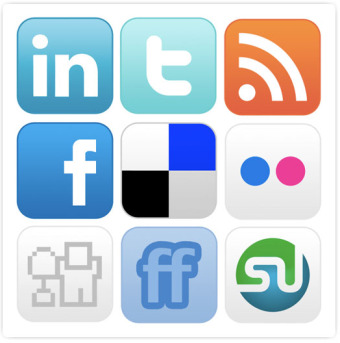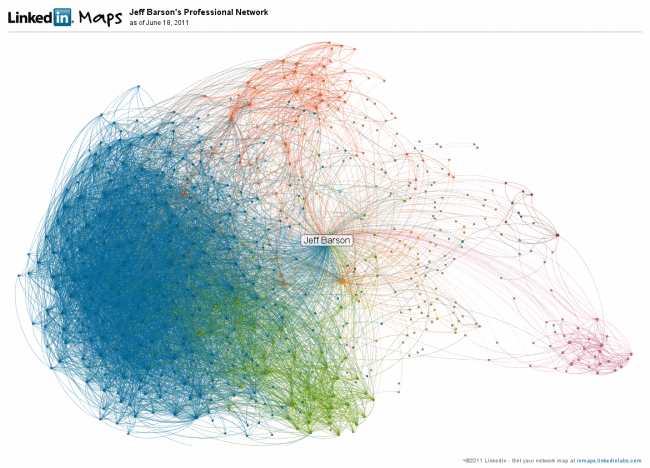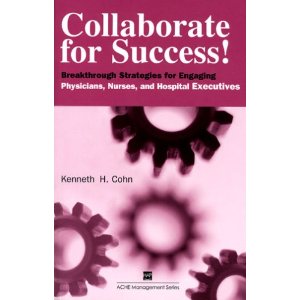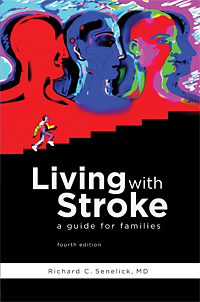 With the spreading of social media into nearly every aspects of our lives, it is worth pausing and reflecting upon their value.
With the spreading of social media into nearly every aspects of our lives, it is worth pausing and reflecting upon their value.
Are you tweeting yet? Posting to your Facebook wall? How about connecting through LinkedIn? How big is your cirlce in Google+? With the onslaught of social media, there is mounting pressure to join each network, manage conections and monetize these various social media outlets. It seems as if social media has become the dominant measuring stick for how well you are doing as a business and how well you are connecting with others.
And while I think social media is something to be embraced, I do not think every outlet is for every person. Nor do I believe that social media serves as any type of barometer in your life (professional and personal). In fact, I think the more you are selective about where you garnish your social media energy and attention, the better you can use social media to your advantage.
Before I get to the specifics of the most popular social media outlets, I want you to come away from this article with one main point: social media presence does NOT equate to success. There is a lot of advice coming at us telling us to join all of the social media networks, trying to convince us that the only way to grow our business and connect with people is by creating these various outposts/hubs to connect with others.
The truth remains, however, that most of the time you can spend a lot of time and energy creating and maintaining these various social media outlets without actually realizing much results. And so while we embrace social media in medicine and beyond, we need to be cognizant as to the actual role of each social media outlet is providing for us. I think a better perspective is "what can I do for social media" not "what can social media do for me".
Let's review the major social media outlets. For each I will give you my personal experience and opinion:
1. Facebook: with over 500 million users, Facebook has become THE largest social media outlet. I read an article today that said the biggest competitor to Apple is now Facebook. Same goes for who competes with Google. Most of us are familiar with Facebook on the personal side. But I wanted to focus on the professional side--Facebook Fan Pages. I currently have two separate FB Fan pages: one for the clinical side of life and one for my consulting side.
The clinical side (Organic Medicine Now) was easy to build and grow. I post my personal blog posts to this FB Fan Page, ask my fans questions and interact. Within a few months of starting my Organic Medicine Now FB fan page I had over 3000 fans. I was excited about this, indeed. I was making a small dent with all of my followers. Really? Sure, it is fun to see fan numbers grow and it is great to get feedback from fans about my blog posts and comments, but what purpose is this fan page really serving? To date, I don't have a good answer. I fully understand the concept of being able to broadcast information about my practice and my views, but I can tell you that I do not think I have gotten any new patients because of my FB wall or sold any of my supplements to any fans. So the obvious question is why continue to put my energy into something that is not leading to any results ? For me, I initially thought my FB wall would help grow my practice, but I now view this differently. Now, I understand that my FB wall is for me to share my opinions and to interact with my fans. As such, I do not spend a great deal of time on my FB wall.
My consulting FB fan page is just getting started, but I am more excited about this one. It is called New Rules of Medicine and it is a place where I am trying to host a discussion about ways we can improve modern medicine. I see this FB fan page not as a way to promote my business, but as a means to host this discussion. Last week after getting my settings squared away I wanted to notify my colleagues about my new FB fan page. I thought about blasting out a mass email asking people to LIKE the page and spread the word. But this did not feel right, so I sent out personal emails to about 50 or so colleagues. Did that work to grow and spread my New Rules of Medicine FB fan page? Not really. I had a few colleagues jump on and LIKE my page. I now have 10 fans. Woohoo! But I have to start somewhere, and now I understand that the role of my FB fan page is to host a discussion, not promote a product. So even though this fan base is going to take a lot longer to build, it will be more worthwhile.
In summary, I think Facebook can be a valuable tool for your business. But please understand there is ever growing pressure for people to LIKE your page without that meaning much. Please be sure you are not putting too much energy into Facebook without seeing results.
2. Twitter: Twitter is appealing to many people as you can gain a huge following quickly without having to invest much time and energy. The appeal to Twitter, I think, is like text messaging--you can communicate without having to write much at all.
I tried Twitter and hated it. I started gaining fans and following people and companies I was interested in. But after several months, I realized there was no point in me providing updates to what I was doing or even interacting with other Twitter users. I saw zero return for the time and energy I invested.
I think Twitter has a role if you are hosting a conference and want to be able to quickly broadcast messages to attendees. But trying to promote your business or personal life via tweets seems counterproductive to me. I like being able to connect with people by writing and interacting, but Twitter really limits that ability. Again, I think Twitter can help you broadcast information, but pales in comparison to Facebook which offers the same capabilities and a whole lot more.
3. LinkedIn: deemed the social network for professionals, LinkedIn seems to be steadily growing in popularity. I have recently opened a LinkedIn account, but to date do not see how using LinkedIn is much different than Facebook. Certainly I can connect with other like-minded professionals and network accordingly, but to me, LinkedIn represents another time sucking arena created to help people network and not much else.
This goes to the heart of these social media outlets--are you using them to just network and promote yourself OR are you utilizing them to host, lead and moderate the issues and values you created your business around? To me, the latter is so much more important as I feel that everyone is trying to network somehow and I would much rather be the host at the dinner party than the attendee just trying to pass out business cards. LinkedIn feels like a place to go to pass out business cards and so it does not have much appeal to me at this point.
4. Google+: Google+ seems promising because of how much energy and resources Google is placing into this new network. I also like how you can create different circles of people to share information with based upon your own tags that you assign. So for someone like me who leads two separate discussions (clinical and consulting) where the two do not overlap, Google+ seems to offer promise.
Google has brilliantly become the leader in search engines and their Ad Words is a phenomenal marketing program, so I expect similar results from Google+. Since they are the latest kid on the block, I am not sure if they will be able to dig into the influential arenas that Facebook and Twitter have developed. But Google+ feels like a place where one can share information and lead discussions and for those reasons, I am looking forward to learning more.
5. You Tube: I am including You Tube here as a social network because I think video represents the most potential for the future of social media connecting. You Tube is now enormous and because we are all enamored with video, I think being a part of You Tube is a must for businesses looking to network, promote and lead discussions.
So far, most of us use You Tube as a place to share information. We create videos of ourselves talking about our services and products. Video is a great medium to relay information because we can be much more creative with video (sounds, music, movement, etc.) compared to written text.
But I don't think we have even begun using video like we will be in five years from now. If I have any advice for you, it is to learn about video production and how to make that work for your business. Creating a You Tube Channel is easy to do and only takes a few moments.
I have not created many videos for my You Tube channel in a while as I have enjoyed taking a break and writing, but I plan on getting back to video creation and editing very soon. In fact, I think that video-casting is going to be something I do more than writing in the near future. Video is that powerful a tool and I encourage you to explore this medium.
With all of the above being said, I think the key questions are this: what suits your personality? what suits the goals of your business, your personal life?
You have to be able to answer those questions before you can go using social media outlets. Because if you don't, these different social media outlets can take up a lot of your time. To me, I break it down as follows:
- Blogging: my favorite way to share my thoughts, comments and opinions
- Facebook: my favorite way to broadcast information and host discussions
- Twitter: not suited to my personality or goals and therefore I do not participate
- LinkedIn: seems to be like a big arena to pass around business cards, but not much else
- Google+: seems to be moving social media in a good direction; too early to tell if I will be able to utilize
- You Tube: represents video distribution and the future of social media
What social media outlet do you like to use? Why? We would all love to hear your experiences!
 Email This Article tagged:
Email This Article tagged:  Google +,
Google +,  Social Networking,
Social Networking,  Ssocial media,
Ssocial media,  Twitter,
Twitter,  youtube |
youtube |  Feb 24, 3:04 PM
Feb 24, 3:04 PM 









